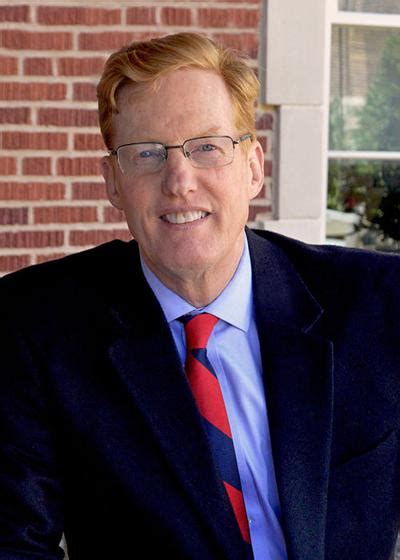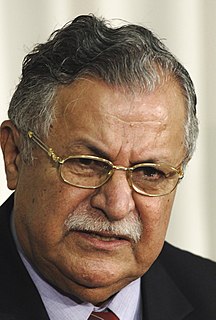A Quote by Joshua Landis
I do believe that the Kurds are in a difficult situation. They do have some American support. How consistent that will be is unclear. But they have built up a strong military, and they have begun to build the institutions of an autonomous life in Northern Syria. Turkey's enmity towards the Kurds and their desire to make sure there is no independent Kurdish state or even really autonomous enclave is going to push the Kurds into Bashar Assad's hands over time.
Related Quotes
Kurds are going to have to strike a bargain with Bashar Assad that will keep them in the Syrian state and under some kind of Syrian authority, so that they can have the protection of international legitimacy and the Syrian army against the Turks. How they can bargain with Assad is unclear. What kind of negotiations they can come to, unclear. We will see whether they get something like the Kurds in Iraq, which is a large measure of autonomy, or something less than that. That will be one of the big negotiations to come out of this process.
Now the world believes in Kurds, as they have become partners in that region. The West doesn't believe in the Iraqi government - not in Maliki before or Abadi today. It doesn't believe in Syria in any way, nor in Iran. So the Kurds could maybe work together with the Western world to bring stability to the region. It's a nice change, coming as it is after hundreds of years of the struggle of the Kurds.
The feeling of being an Iraqi unites all ethnic groups within this country. Even the Kurds, who have traditionally pushed for their own state, see the benefits of the current situation. They enjoy an autonomous status in Kurdistan, while at the same time participating in decisions in Baghdad. But if neighboring states were to push for a partition of Iraq, it would be a horrible mistake.
The Kurds know that they won't achieve their own state by force of arms but through international recognition. And they have certainly heard what the German foreign minister said in connection with the arms deliveries: There is no Kurdish state. But that shouldn't prevent the Kurds from continuing to develop their own institutions. Still, the best thing for them would be to remain a part of Iraq, but in return we must treat them with respect - their nationality, their language and their culture.
It cannot be an American fight. And I think what the president [Barack Obama] has consistently said - which I agree with - is that we will support those who take the fight to ISIS. That is why we have troops in Iraq that are helping to train and build back up the Iraqi military, why we have special operators in Syria working with the Kurds and Arabs, so that we can be supportive.
Most Turkish Kurds want a quiet life and improved economic conditions. But the Kurdish regions of Turkey are mountainous; they're ill-favored climatically; they're poor; and there's a limit to what the government can do there without wasting a lot of resources. Developing the south east may mean decamping a large part of its population. But the thing that will improve the lot of the Kurds more than anything else will be the stabilization of Iraq in the first place, because then the Turkish southeast stops being a dead end. It can become a bridge, with trade flowing in both directions.
By very conservative estimates, Turkish repression of Kurds in the 1990s falls in the category of Kosovo. It peaked in the early 1990s; one index is the flight of more than a million Kurds from the countryside to the unofficial Kurdish capital, Diyarbakir, from 1990 to 1994, as the Turkish army was devastating the countryside.
The problem of ISIS is not recent. Ever since the Second World War, people in this region have been, and are today, living under brutal dictatorships governed by nationalistic fervor. As for the Kurdish question: nobody from the Arab world is serious about fighting ISIS. It's only the Kurdish people who are standing firm against ISIS. And I think Europe, the United States, and most other democratic countries of the world are beginning to look at the Kurds in another way. The Kurds are really becoming their partners in the region.
The Kurds had always had a bad time. They were oppressed by the Ottoman empire. Then, at the end of the First World War, they were promised a homeland, but the new Turkish state refused to give them any land, while the British went and created the new state of Iraq and sent aircraft to bomb the Kurds there into submission.
Nation building is our central task, both in Afghanistan and in Iraq. And states, nations can't just be built with military power. Despite all difficulties, it's very inspiring to see how the Kurds, the Arab Sunnis and the Shiites are coming together here, how they're jointly defining the basis on which their state is to be built, the political course this state will pursue and who is to receive which cabinet positions.





























